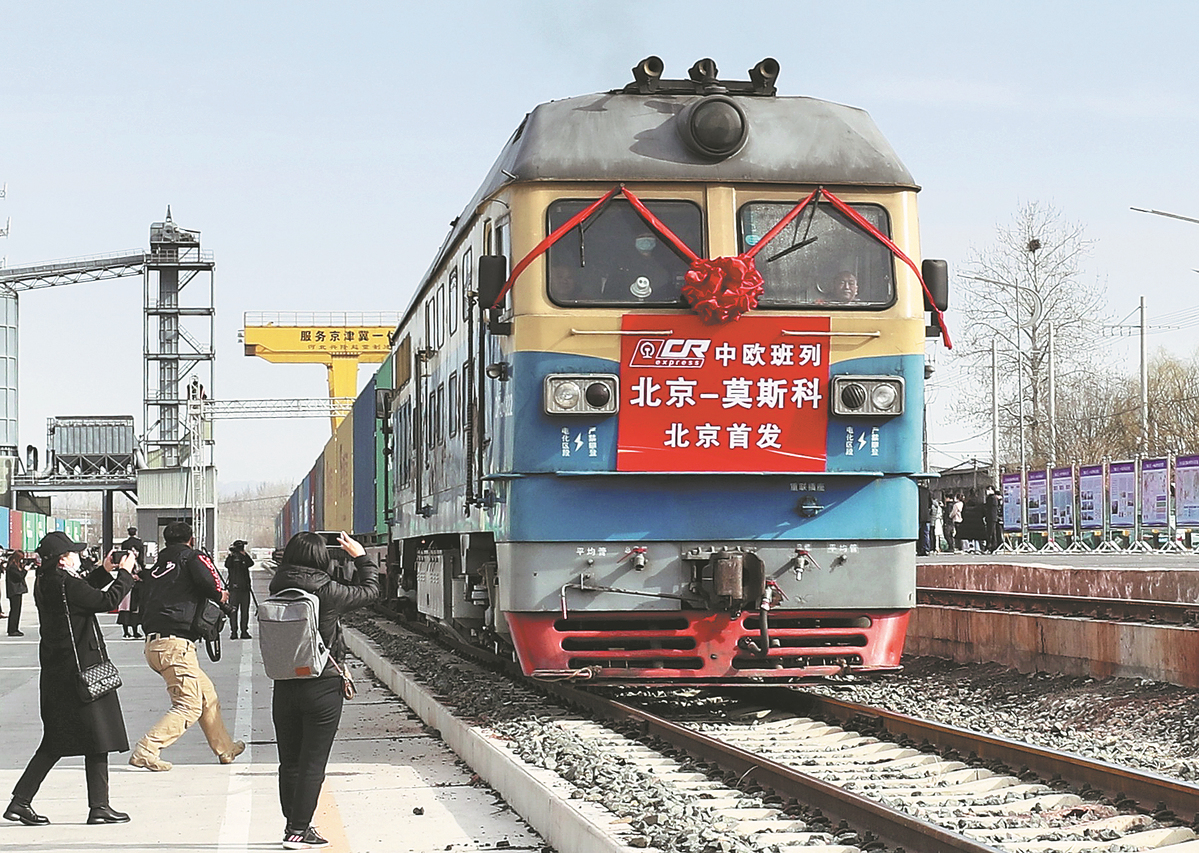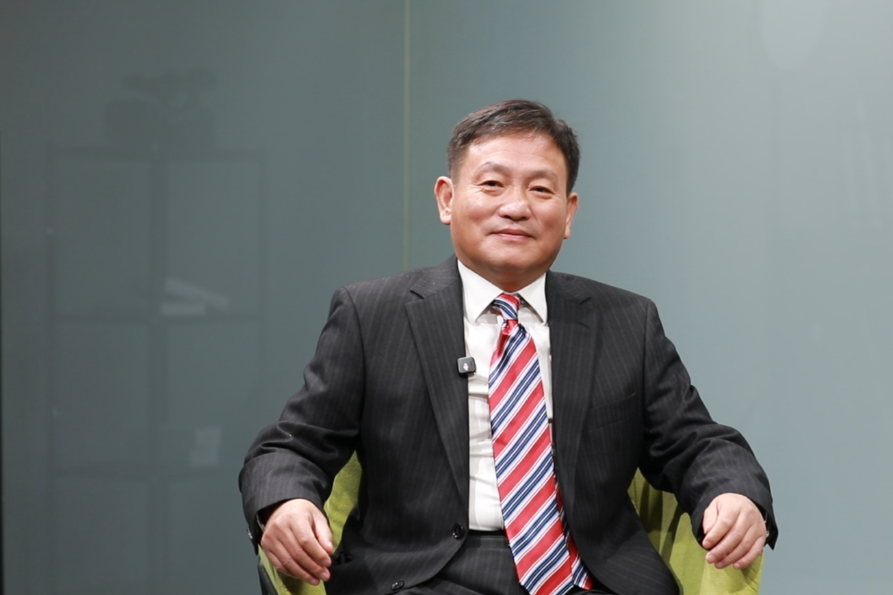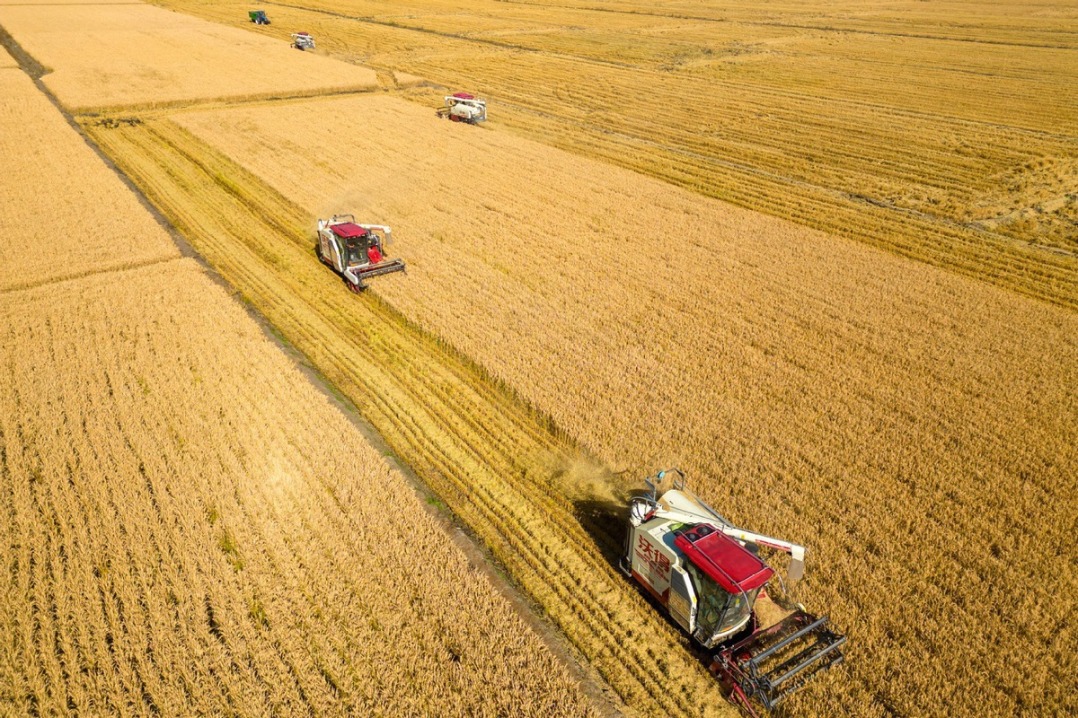Belt and Road promoting common development


Economic cooperation has been an admirable priority focus of a dynamic, pragmatic and outward-looking China over the past 10 years, despite the world's stormy geopolitical environment wracked by internecine political and ideological conflicts, economic uncertainties and the cataclysmic pandemic crisis.
This trade-focused outlook of China is exemplified by its visionary Belt and Road Initiative, which has become a strong driving force for more inclusive, equitable and sustainable global economic growth, mostly benefiting developing countries.
Manifesting China's hopes of "building a community with a shared future for mankind", the Belt and Road Initiative has proposed and implemented infrastructure, trade, technology and socioeconomic projects and cooperation with 140 countries and 32 organizations, which include 46 countries in Africa, 37 in Asia, 27 in Europe, 11 in the Pacific and eight in Latin America.
Apart from becoming a great equalizer by providing economic options for many developing nations, what is also commendable is China's assisting even countries targeted by US-led Western sanctions such as Cuba, Nicaragua and Syria, which were last year welcomed into the inclusive and non-political Belt and Road Initiative.
In contrast to past centuries' economic powers in the West and 19th century Japan, which used colonial conquests to expand their economic reach, China extends its global reach via market-oriented exports and imports, and investments and development loans under the Belt and Road framework.
Indeed, China has no history of colonization even at the height of its economic prowess as the world's wealthiest country. Today, China is trailblazing economic globalization via the Belt and Road Initiative. China's outbound foreign direct investment (FDI) of $82 billion in 2012 had dramatically increased to $154 billion by 2020, thus making it a top overseas investor.
China's Belt and Road Initiative and trade-focused engagement with the world come from its illustrious ancient mercantile tradition and the highly entrepreneurial ethos of the Chinese people epitomized by the ancient Silk Road and the "Galleon Trade".
Therefore, it is apt that the Belt and Road Initiative has been called the 21st century "New Silk Road" and its maritime route the "21st Century Maritime Silk Road". The ancient Silk Road between the East and the West passed through Central Asia, the Indian subcontinent, the Middle East, Africa and Europe while the ancient maritime Silk Road passed through Southeast Asia and long predated the arrival of Western colonizers. The long-time presence of entrepreneurial ethnic Chinese communities in Southeast Asia is a legacy of this ancient maritime Silk Road.
Another oft forgotten mercantile tradition of China's trading with the West for 250 years is referred to as the "Galleon Trade" which passed through the Philippines' Manila as entrepot and then to Acapulco in Mexico from 1565 to 1815. It was the first instance of globalization through the Pacific Ocean, linking Asia to the Americas.
In the 21st century, despite difficulties like the anarchic "trade wars" launched by the United States, destabilizing wars, ideological animosities and other obstacles, the Belt and Road Initiative has accomplished resounding success due to the political will and pragmatism of Chinese leaders combined with the perseverance, unity and great entrepreneurial spirit of the Chinese people.
Some Belt and Road achievements in the past 10 years have had a positive impact on the world:
One, providing much-needed alternative capital (through organizations such as the Asian Infrastructure Investment Bank, New Development Bank and the Silk Road Fund), high technology and new economic opportunities for many countries, especially developing ones in the Global South;
Two, forging more than 3,000 cooperation projects;
Three, alleviating poverty by helping lift about 40 million people out of poverty in different countries;
Four, creating 420,000 jobs across countries and regions;
Five, mobilizing $1 trillion in investments;
Six, helping reduce the widening income gaps and regional development imbalances in many parts of the world;
Seven, building modern transport systems;
Eight, increasing the volume, speed, efficiency and diversity of global trade;
Nine, improving and lowering the cost of telecommunications;
Ten, helping debt sustainability for developing countries, and debunking malicious black propaganda of certain countries on so-called "debt traps".
Helmut Reisen, a professor of economics at the University of Basel and counselor at the OECD Development Centre, wrote: "China has become, by a large margin, the largest creditor in the group of 'new' donors active in Africa. 'Old' donors are accusing China of 'free-riding' on the development efforts deployed by the international community and impairing debt sustainability in low-income countries (notwithstanding the fact that China has also granted debt relief). This Policy Brief… argues that the 'free-riding' concern is misplaced…China is found to have a positive impact on debt tolerance through stimulating exports, infrastructure investment and GNP."
China has also expanded industrial and other strategic supply chains worldwide, supported green and sustainable development, and promoted more dialogue, understanding, mutually beneficial cooperation and people-to-people exchanges among different countries and regions, thus contributing greatly to global social harmony and stability, and world peace.
The author is a moderator at the Pandesal Forum, columnist of the Philippine Star newspaper, and chairman of Anvil Business Club.
The views don't necessarily reflect those of China Daily.


































